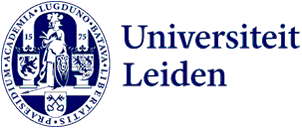
Leiden Leadership Lunch – Uncertainty and innovation in the social domain: The role of leadership
What opportunities does uncertainty offer with regard to innovative behaviour of professionals and what role does leadership play in this?
In order to answer this question Bernard Bernards (PhD-candidate at the Institute of Public Administration) conducted research into the Wmo-neighbourhood teams (Wmo: Social Support Act) in the Municipality of The Hague. In the context of new policy, professionals in these teams are increasingly required to come up with innovative solutions to provide appropriate care to residents ‘as lightly as possible’. In this Leiden Leadership Lunch on November 26th, Bernard further elaborated on this research and its implications for practice. A group of 26 professionals, students and academics joined online.
Uncertainty
Uncertainty is a central feature of working in the social domain. Uncertainty can arise from missing, unclear, or conflicting information. In general, public organisations try to reduce uncertainty as much as possible in order to meet the predictability, legal certainty and straightforward decision-making procedures that citizens expect. Uncertainty from this perspective is thus largely seen as a negative phenomenon. In practice, however, uncertainty is not by definition negatively perceived by professionals. Uncertainty can make one’s job more complicated, but it also renders it more interesting and challenging. Moreover, uncertainty also offers opportunities for innovative behaviour.
Innovative behaviour
Innovative behaviour, on the one hand, consists of the creative process of exploring new ideas (exploration) and on the other hand, refining current work processes and integrating new ideas into routines (exploitation). Uncertainty stimulates innovative behaviour because it necessarily leaves situations undefined and thus it gives professionals room to deviate from standard operating procedures and come up with innovative ideas.
Ambidextrous leadership
Leadership is essential to help professionals manage their work context and thereby encourage innovation. This function of leadership becomes even more relevant in the context of uncertainty. Precisely because people in uncertain situations may choose from multiple options on which course of action to follow, there is a greater need for the team leader to provide direction. It is therefore crucial for managers to have a clear understanding of professionals’ uncertainty experiences in order to adequately support them in this.
Effective leadership targets the two central aspects of the innovation process: effective leaders encourage professionals to combine both exploration and exploitation. This is also referred to as ‘ambidextrous leadership’.
“Leadership is a key mechanism to help people manage the context in which they operate. Leadership determines whether people can convert the opportunities of uncertainty into innovative behaviour.” – Bernard Bernards
More information about the results of this study and what this means for practice can be found in the fact sheet: Innovation capacity in Wmo neighbourhood teams (Dutch).
More information about the uncertainty experiences of professionals and a guide on opening up the conversation on this can be found in the fact sheet: Uncertainty in the social domain (Dutch).


